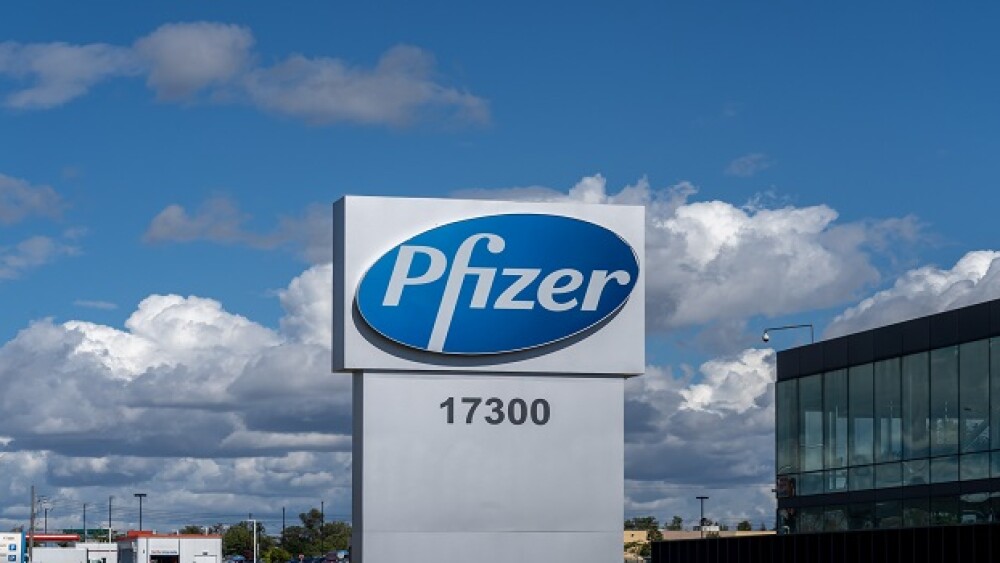Pfizer inked an Equity Subscription Agreement with France-based Valneva. They also updated their Collaboration and License deal for a Lyme disease vaccine that was announced in April.
Courtesy of JHVE Photo/Getty Images
Pfizer inked an Equity Subscription Agreement with Saint-Herblain, France-based Valneva, updating a collaboration and license deal for a Lyme disease vaccine that was announced in April 2020.
Under the terms of the deal, Pfizer will invest $95 million in Valneva, representing an 8.1% stake in the company. Valneva indicates it will use the proceeds to support its Phase III development program for Lyme disease. Pfizer expects to launch a Phase III trial of VLA15, Valneva’s experimental Lyme disease candidate, in the third quarter of this year.
In terms of the updated collaboration and licensing component of the announcement, Valneva will now fund 40% of the remaining shared development costs, up from a previous 30% in the initial deal. Pfizer will pay Velneva tiered royalties from 14% to 22%, versus the original agreement where they began at 19%.
The royalties will be complemented by up to $100 million in milestone payments to Valneva based on cumulative sales. Other biobucks milestones are unchanged, of which there are still $168 million available, including a $25 million payment to Valenva when Pfizer launches the Phase III trial.
“Lyme disease continues to place a heavy burden on countries in North America and Europe, with an estimated 600,000 cases each year across both regions,” Kathrin U. Janse, Ph.D., senior vice president and head of Vaccine Research & Development at Pfizer, said in a statement. “As the geographic footprint of Lyme disease widens, the medical need for vaccination becomes even more imperative. We are excited to continue partnering with Valneva on the development of VLA15 and look forward to working together to progress the program with the goal of bringing forward a vaccine that could help prevent this debilitating disease.”
Lyme disease is a tick-borne disease caused by a bacterium, Borrelia burgdorferi. VLA15 is currently the only vaccine candidate in clinical development for the disease. The multivalent, protein subunit vaccine uses a mechanism that targets the outer surface protein A (OspA) of the bacteria. This blocks the bacterium’s ability to leave the tick and infect humans.
Valneva is also working on a COVID-19 vaccine, VLA2001, which was authorized for use in the United Arab Emirates in May, and in Bahrain, and conditional marketing approval in the UK in April 2022. Last week, the company announced it had signed a settlement deal with the UK government over the termination of the supply agreement for the vaccine candidate.
On Sep. 13, 2021, the UK government terminated the supply deal under the terms of their original contract. Valneva said that the “settlement agreement resolves certain matters relating to the obligations of the Company and HMG (Her Majesty’s Government) following the termination of the supply agreement and in relation to the separate agreement relating to clinical trials of VLA2001 in the United Kingdom, which remains in place.”
The company’s pipeline includes the COVID-19 and Lyme disease vaccines, as well as one for chikungunya. It has two commercial vaccines for travelers: Ixiaro for Japanese encephalitis, and Dukoral for cholera.
“Pfizer’s investment in Valneva highlights the quality of the work that we’ve done together over the past two years and is a strong recognition of Valneva’s vaccine expertise,” Thomas Lingelbach, CEO OF Valneva, said of the amended deal with Pfizer. “This subscription agreement will contribute to our investment in the Phase III study while limiting the impact on our cash position. Lyme disease is spreading and represents a high unmet medical need which impacts the lives of millions of people in the Northern Hemisphere. We are looking forward to further investigating our VLA15 candidate in Phase III, which will take us a step closer to potentially help protect both adults and children from this devastating disease.”
Featured Jobs on BioSpace





